Electric vehicles (EVs) are becoming increasingly popular in the United States, with battery-powered cars now making up the fastest-growing segment of the auto market. However, are Americans ready to embrace the change and ditch their gas-guzzling cars? A new Yahoo Finance-Ipsos poll reveals some surprising insights into the preferences and concerns of US consumers regarding EVs.
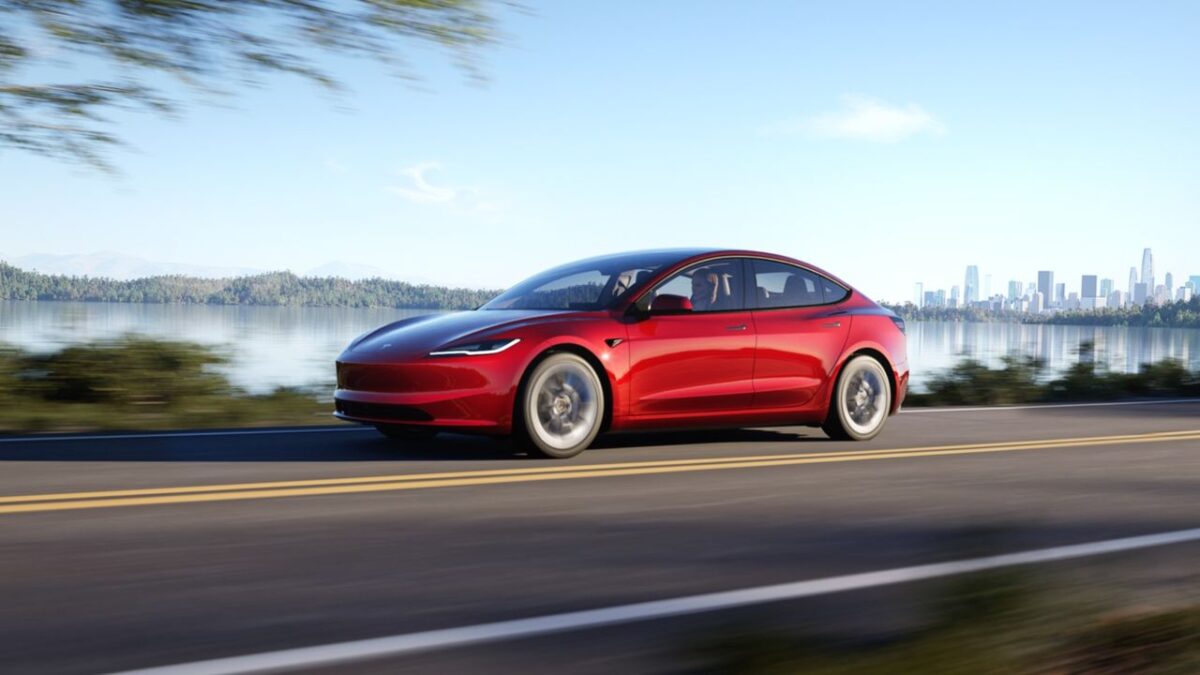
The poll, conducted online from September 29 to October 1, 2023, surveyed 1,025 US adults who are representative of the general population in terms of age, gender, race, education, income, and region. The poll asked them about their likelihood of buying an electric vehicle next time, their top worries about EVs, their views on government policies to limit gasoline vehicles, and their favorite brands for EVs.
According to the poll, 41% of Americans say they would be at least somewhat likely to purchase an electric vehicle as their next car. However, nearly half of adults (46%) still prefer to own a gas-powered car or truck. The poll also found that the cost of EVs remains a significant barrier to adoption, with 63% of respondents citing it as a concern.
In this article, we will analyze the results of this poll and provide a clear picture of the current state of electric vehicles in the US. We will also explore the factors that are driving or deterring consumer decisions and what this means for the future of the automotive industry.
- Quick Overview:
- How Likely Are Americans to Buy an Electric Vehicle in Their Next Purchase?
- Why Are Americans Avoiding Electric Cars in Their Next Purchase?
- Aside Not Buying EVs, Americans Are Rejecting Government Restrictions on Gasoline Vehicles
- Top Automakers Americans Would Consider Buying an Electric Vehicle From
- Is the Future of EV Adoption in the US Positive or Negative?
- Conclusion
- FAQs
Quick Overview:
- Over 50% of Americans are not likely to purchase an EV for their next vehicle
- Main concerns include lack of charging stations (77%), driving range anxiety (73%), and overall cost (70%)
- Demographic factors such as age, income, and political affiliation influence likelihood of purchasing an EV
- 39% of Americans strongly oppose government restrictions on gasoline vehicles
- Toyota is the preferred automaker for EVs in the U.S, followed by Tesla and Honda
How Likely Are Americans to Buy an Electric Vehicle in Their Next Purchase?
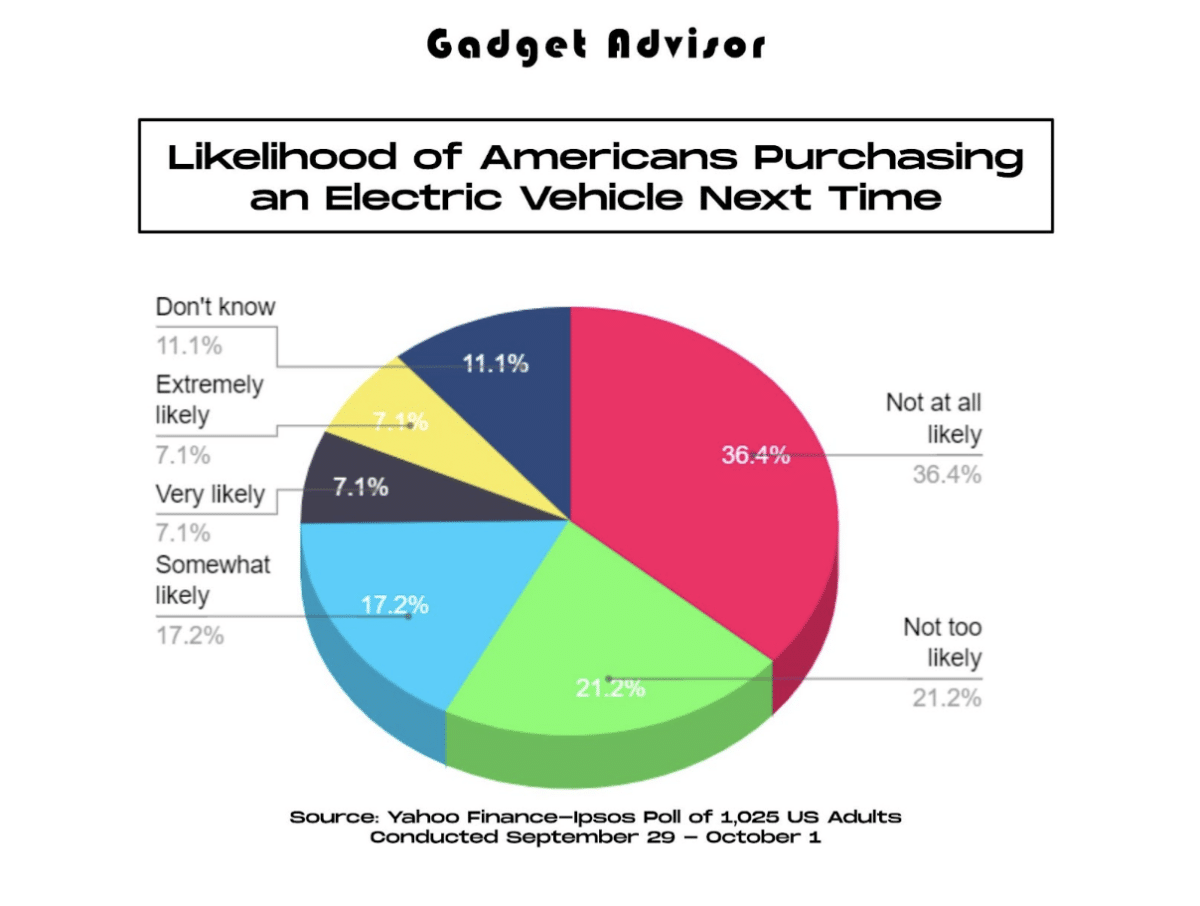
There are varying degrees of likelihood that Americans would buy an electric vehicle (EV) for their next car purchase. The graphic shows that a majority of respondents (36%) are completely opposed to the idea of switching to an EV, while only a small fraction (7%) are very enthusiastic about it. This contrast reveals a sharp division of views and tastes among the US population regarding EVs.
There are also demographic details in the sense that some groups are more resistant to EVs than others. For instance, 70% of the respondents who are 65 years or older say they would not buy an EV next time. This could be due to their lack of exposure to the new technology or their attachment to the conventional gasoline cars that they have driven for decades.
Similarly, 60% of the respondents who earn less than $50,000 per year are not likely to opt for an EV. The high price of EVs, even with government subsidies and potential savings on fuel and maintenance, can be a major obstacle for low-income individuals and families. Moreover, political orientation seems to influence EV adoption, as 76% of the respondents who identify as Republicans are unlikely to acquire an EV.
The graphic likewise indicates a considerable segment of the population that is unsure, with 11% answering “don’t know” when asked about their likelihood of buying an EV next time. The ambiguity stemming from this shows a lack of knowledge or misinformation about EVs, suggesting the need for more effective education and awareness campaigns to address common issues and myths.
Why Are Americans Avoiding Electric Cars in Their Next Purchase?
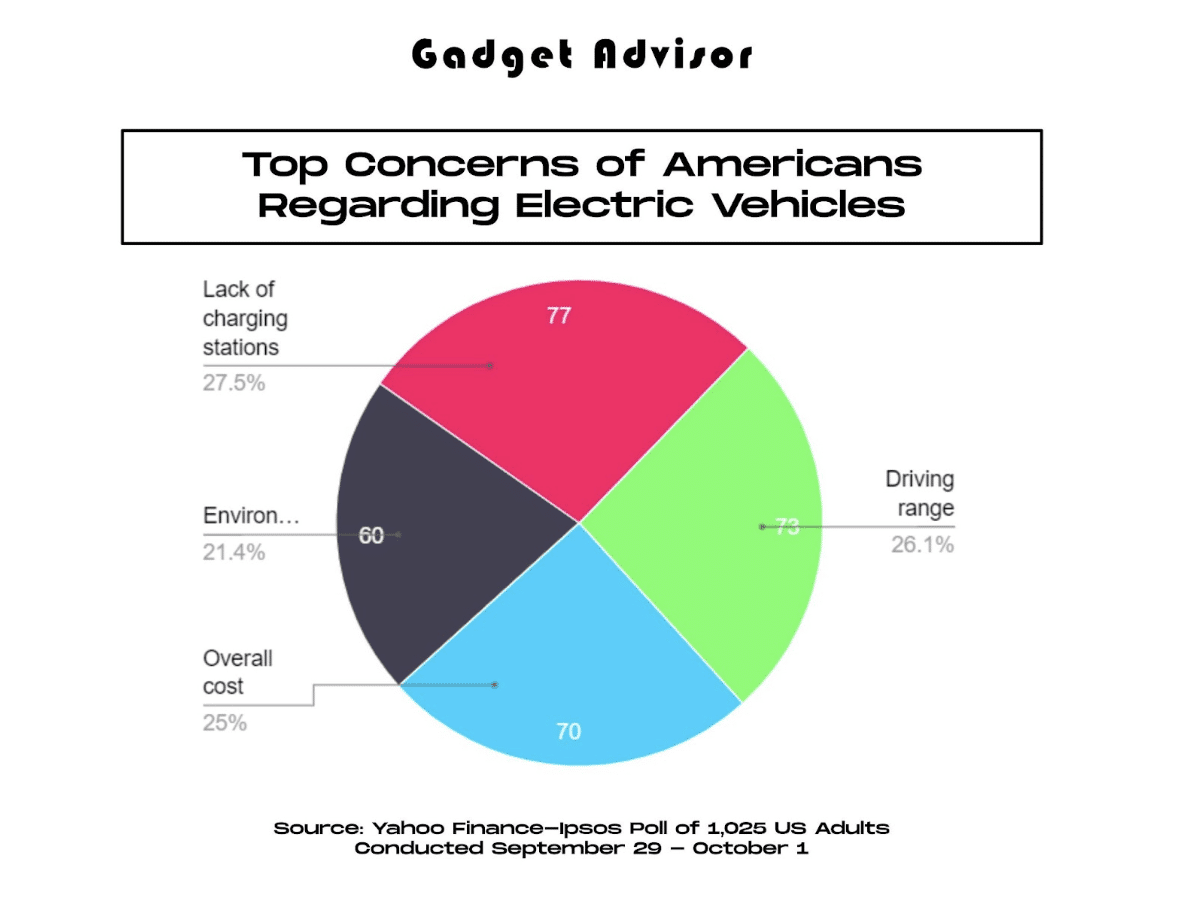
The main challenges that prevent more people from buying electric vehicles (EVs) in the United States are clear from the graphic result. The most common concern, shared by 77% of respondents, is the lack of charging stations. The charging station network in the US is still not enough to accommodate the growing number of EVs, and this shortage is a significant hindrance to the adoption of the electric vehicle. McKinsey analysts estimate that if the US wants to reach its goal, it will likely need 1.2 million public and 28 million private EV charging stations by 2030.
Another major concern, mentioned by 73% of Americans, is the driving range of EVs. This concern is commonly referred to as range anxiety and is related to the worry of running out of battery before reaching a charging station. However, with the advent of longer-range EVs, this fear seems misplaced. Besides, as more and better distributed charging stations become available, it will help reduce range anxiety.
The initial cost of buying an EV is the third most frequent concern, with 70% of Americans naming it as a barrier. While EVs can save money on fuel and maintenance in the long run, they often have a higher purchase price than gasoline cars, which can discourage many people, especially those with lower or moderate incomes. However, it’s worth noting that EVs are cheaper to own on a yearly basis due to their reduced fuel and maintenance costs and tax rebates for those who qualify.
Finally, 60% of Americans expressed concern about the environmental impact of EVs. This is surprising as EVs are generally considered to be a greener option than gasoline cars. However, the environmental cost of manufacturing EV batteries and generating electricity for charging them can be high. For instance, it takes 500,000 gallons of water to refine one ton of lithium carbonate, which is a key component in EV batteries. Despite these environmental costs, EVs are responsible for considerably lower emissions over their lifetime than conventional vehicles.
Aside Not Buying EVs, Americans Are Rejecting Government Restrictions on Gasoline Vehicles
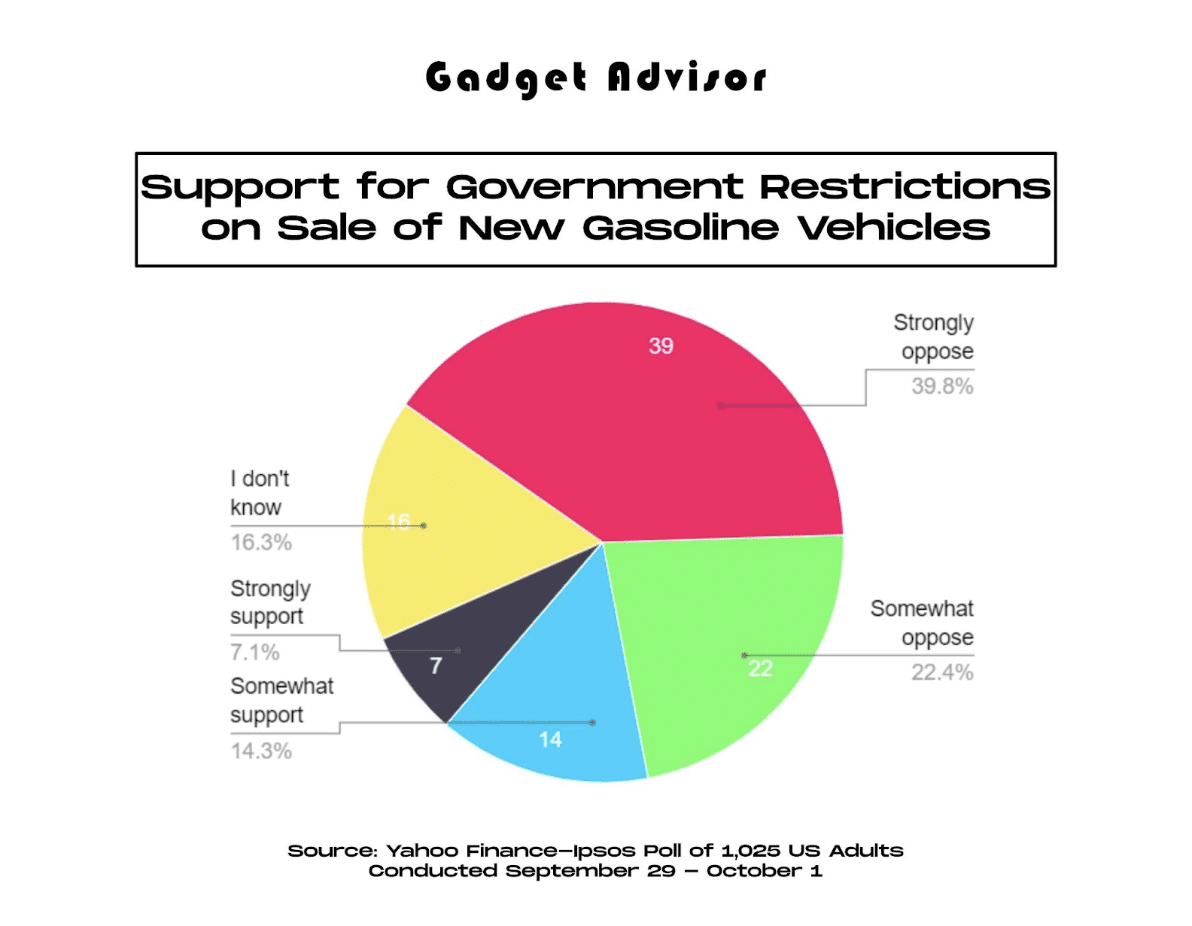
Asides not buying an EV in their next purchase, there is a clear opposition among the majority of Americans towards government restrictions on the sale of new gasoline vehicles. A significant 39% of respondents strongly oppose such restrictions, while an additional 22% somewhat oppose them. This combined opposition of 61% showcases a prevailing sentiment against regulatory measures that would limit the availability of gasoline vehicles.
On the other hand, a smaller proportion of the population is in favor of these restrictions, with 14% somewhat supporting and 7% strongly supporting them. This 21% in favor is significantly lower than the opposition, indicating that the idea of government-imposed restrictions on gasoline vehicles is not widely popular among Americans.
Interestingly, there is a notable percentage of respondents (16%) who are unsure or do not have a clear stance on this issue. This uncertainty could be due to a lack of information or understanding about the implications of such restrictions, or it could reflect a divided opinion on the balance between environmental considerations and personal freedom of choice.
The graphic thus suggests that Americans value autonomy and choice when it comes to buying vehicles, and they are not ready to give up their preference for gasoline vehicles in favor of electric vehicles. This could be due to various factors, such as the ones mentioned above, or it could be due to the status quo bias – which is the tendency of people to avoid losses than acquire gains. The latter seems plausible in an era of rising global economic turmoil.
Top Automakers Americans Would Consider Buying an Electric Vehicle From
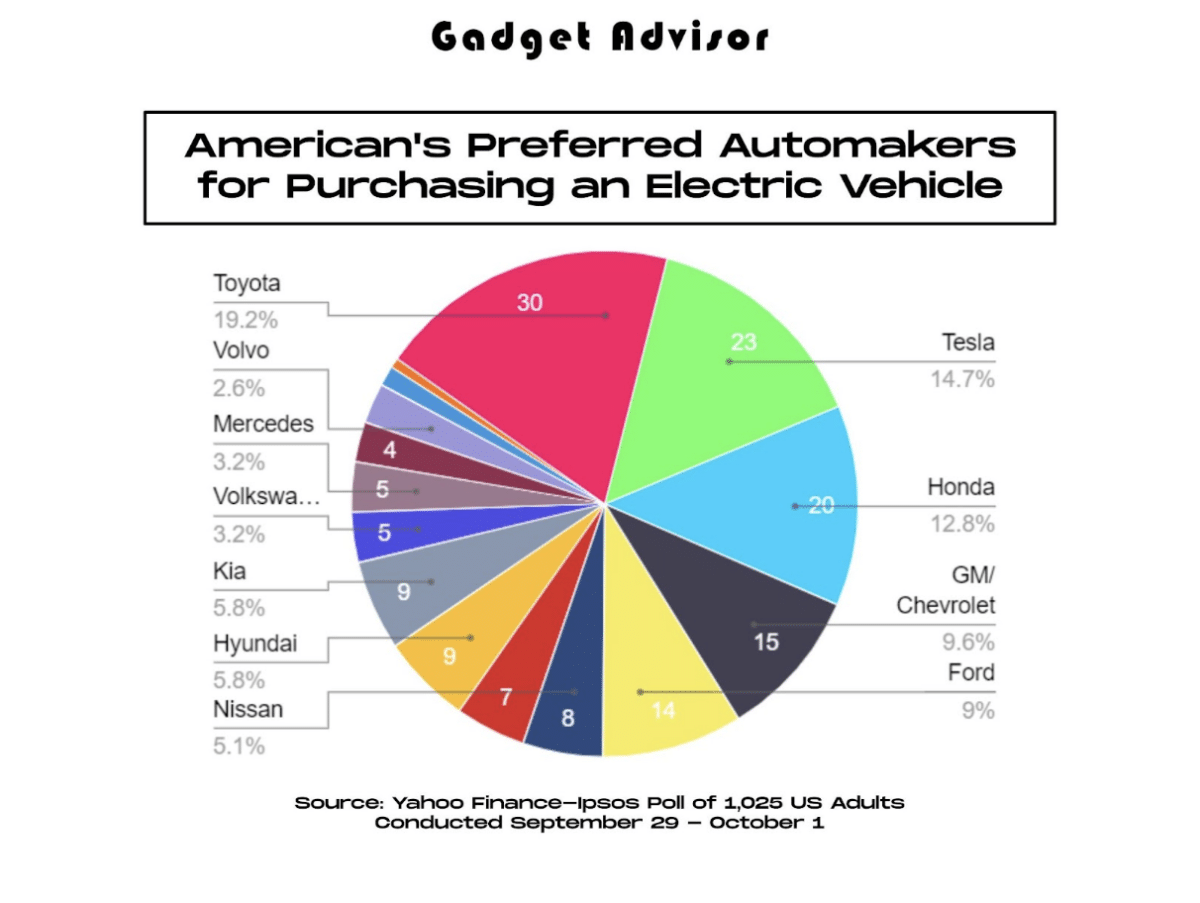
Toyota is the most preferred automaker for purchasing an electric vehicle among Americans, with 30% of respondents indicating they would consider the brand. Tesla follows closely behind with 23%, while Honda, GM/Chevrolet, and Ford are also popular choices with 20%, 15%, and 14% of respondents respectively. Other automakers such as Nissan, BMW, Hyundai, Kia, Volkswagen, Mercedes, Rivian, Volvo, Polestar, and Stelantis also made the list but with lower percentages.
Toyota’s popularity could be due to its long-standing reputation for reliability and quality, as well as its early entry into the hybrid market with the Prius. Tesla’s choice is likely because of its position as a leader in the electric vehicle market, with a range of high-performance electric models that have captured the public’s imagination. Honda, GM/Chevrolet, and Ford are also well-established automakers with a history of producing reliable vehicles, and their entry into the electric vehicle market has been well-received.
The lower percentages for automakers such as Nissan, BMW, Hyundai, Kia, Volkswagen, Mercedes, Rivian, Volvo, Polestar, and Stelantis are possibly based on factors such as limited availability of electric models or perceived lack of performance compared to other brands. It is worth noting that some of these brands such as Rivian and Polestar are relatively new entrants to the market and may see their popularity increase as they establish themselves and release more models.
The electric vehicle market is still in its infancy and there is a lot of room for growth and competition. As technology improves and more models become available, it is likely that we will see shifts in consumer preferences and market share. Automakers that are able to offer a range of high-quality, reliable, and affordable electric vehicles will be well-positioned to capture a larger share of the market and help drive the transition to a more sustainable transportation system.
Is the Future of EV Adoption in the US Positive or Negative?
The analysed Yahoo Finance-Ipsos poll, which indicates that over half of Americans are unlikely to purchase an electric vehicle (EV), should not be viewed with pessimism. It’s important to note that the poll’s sample size is small and may not accurately represent the entire United States.
In fact, nationwide EV adoption rates have been on a steady upward trend, accounting for 8.6% of total new-vehicle retail sales. However, these rates vary significantly across different regions. States such as California, Washington, Hawaii, Oregon, and Nevada, which have heavily invested in incentives and infrastructure, boast the highest levels of EV adoption. Conversely, states like North Dakota, West Virginia, South Dakota, Louisiana, Wyoming, and Mississippi that have not made similar investments report the nation’s lowest EV adoption rates.
JD Power’s EV Retail Share Forecast predicts this regional disparity in adoption rates to persist until 2035. For instance, California is projected to achieve a 94% EV share while North Dakota may only reach 20%. Michigan is expected to secure a 41% share within the same period.
Despite current skepticism, the number of EVs in the US is expected to surge to 27 million by 2030 and further to 92 million by 2040. Correspondingly, the EV charging market is anticipated to expand nearly tenfold to accommodate the charging needs of these vehicles.
Significantly, the US has surpassed the crucial threshold of 5% of new car sales being solely electric-powered. This milestone signals the onset of mass EV adoption as it represents a tipping point where technological preferences rapidly shift.
Analysts predict an approximate 20% EV penetration by 2025, indicating that America may be entering the rapid-growth phase of the S-curve. This curve characterizes new-technology adoption patterns: initial modest growth among enthusiasts and insiders followed by a burst of mass-adoption and eventually a leveling-off of market saturation.
The EV adoption curve has five stages, each with its own adopter category, and the key to adoption is that the person must perceive the idea, behavior, or product as new or innovative. The factors that influence EV adoption include range, price, charge time, infrastructure, social attitudes, and related policies.
Conclusion
The electric vehicle market in the United States is currently at a critical stage. Although there is a growing interest and adoption of electric vehicles, significant barriers remain, including concerns about charging infrastructure, driving range, and cost. Addressing these concerns, along with effective education and awareness campaigns, will be key to increasing EV adoption. Additionally, the preferences for specific automakers indicate that reliability, performance, and brand reputation will play a significant role in consumers’ EV purchasing decisions.
FAQs
The top concerns are lack of charging stations (77%), driving range anxiety (73%), and overall cost (70%).
Demographic factors such as age, income, and political affiliation, as well as concerns about charging infrastructure, driving range, and cost, influence the likelihood of purchasing an EV.
A majority of Americans (61%) oppose government restrictions on gasoline vehicles.
The preferred automakers are Toyota (30%), Tesla (23%), and Honda (20%).

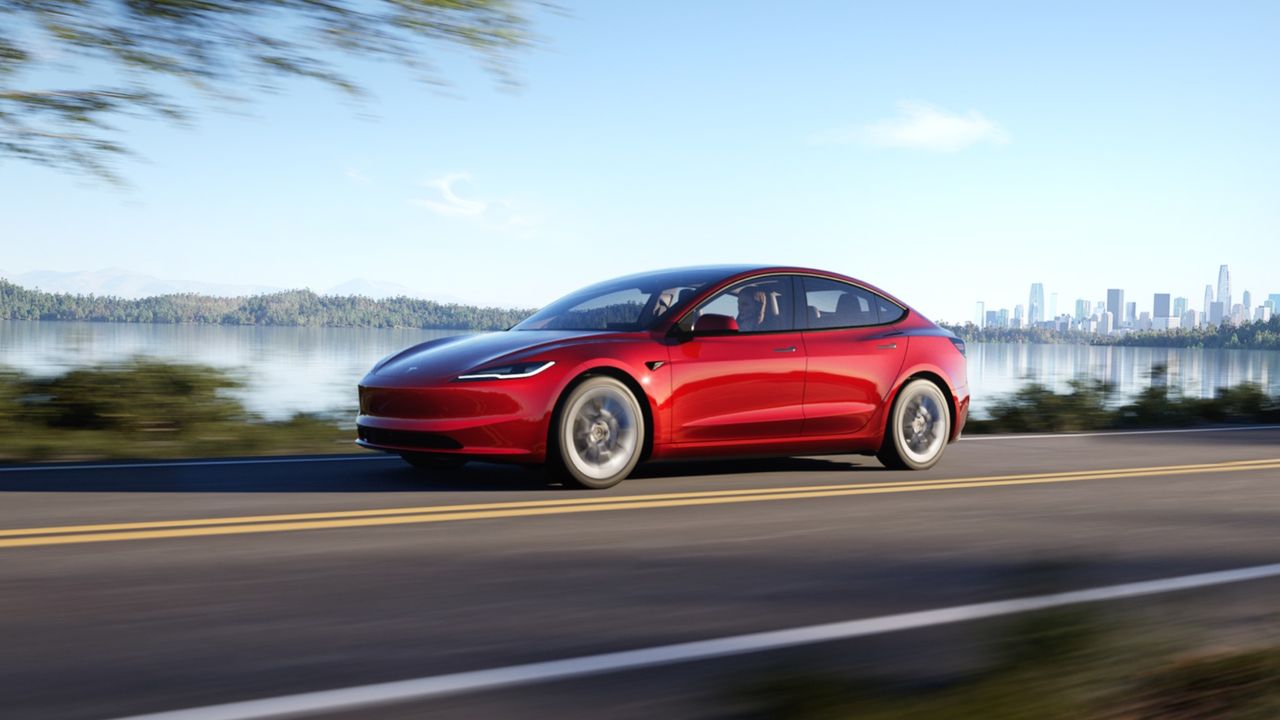
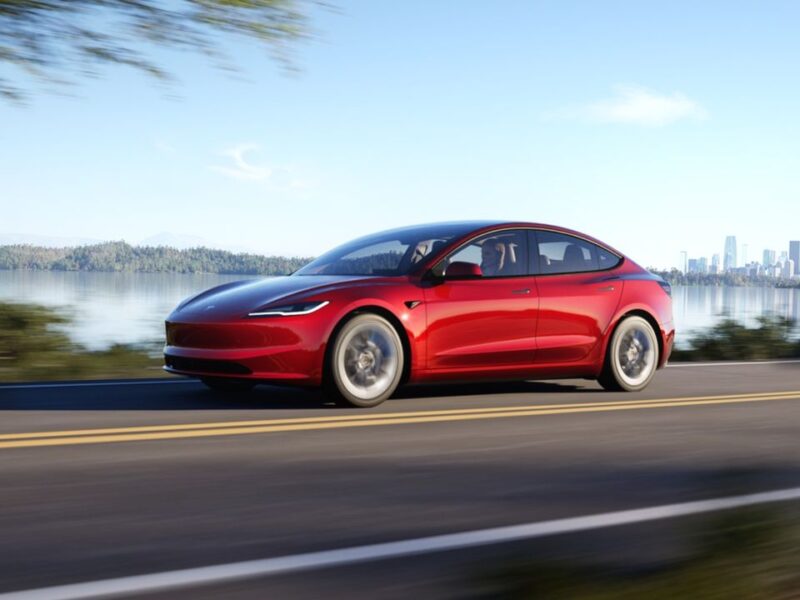
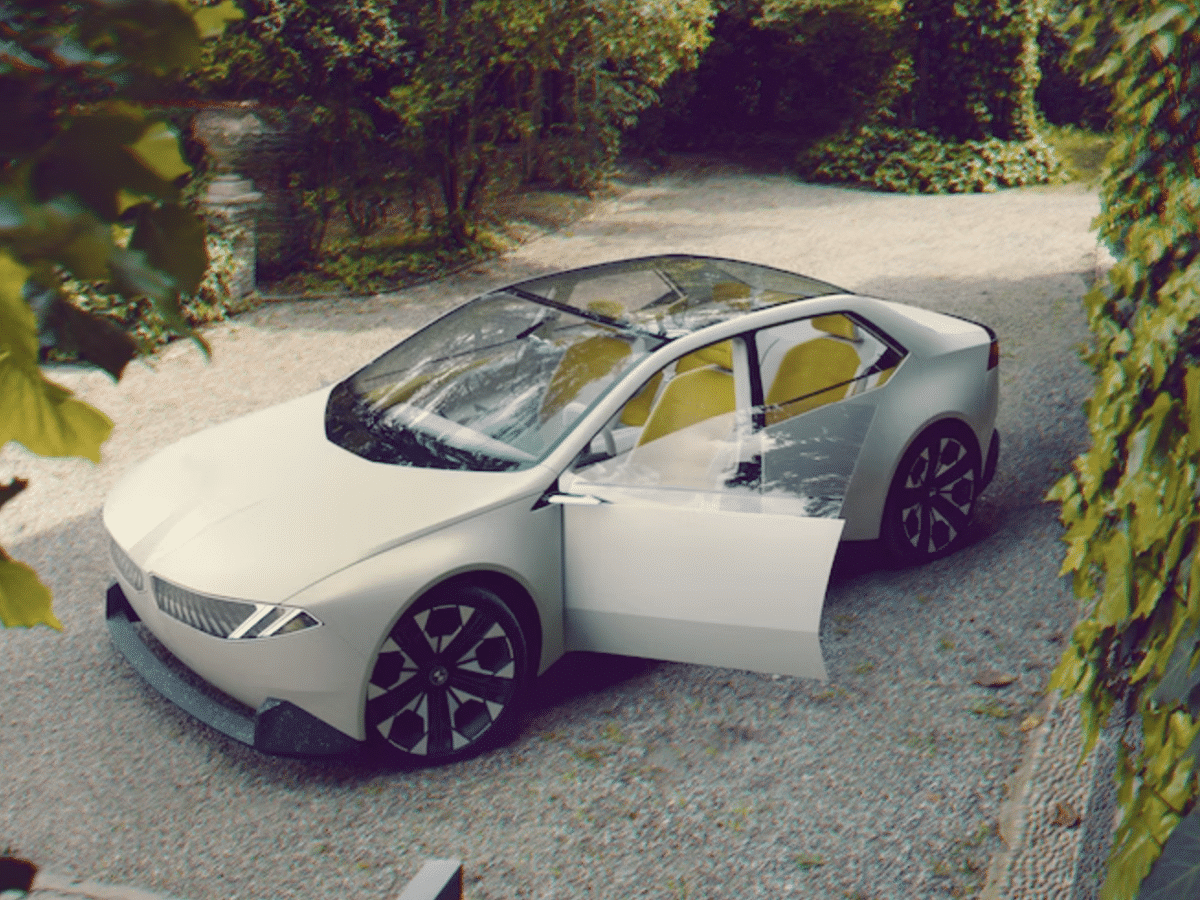
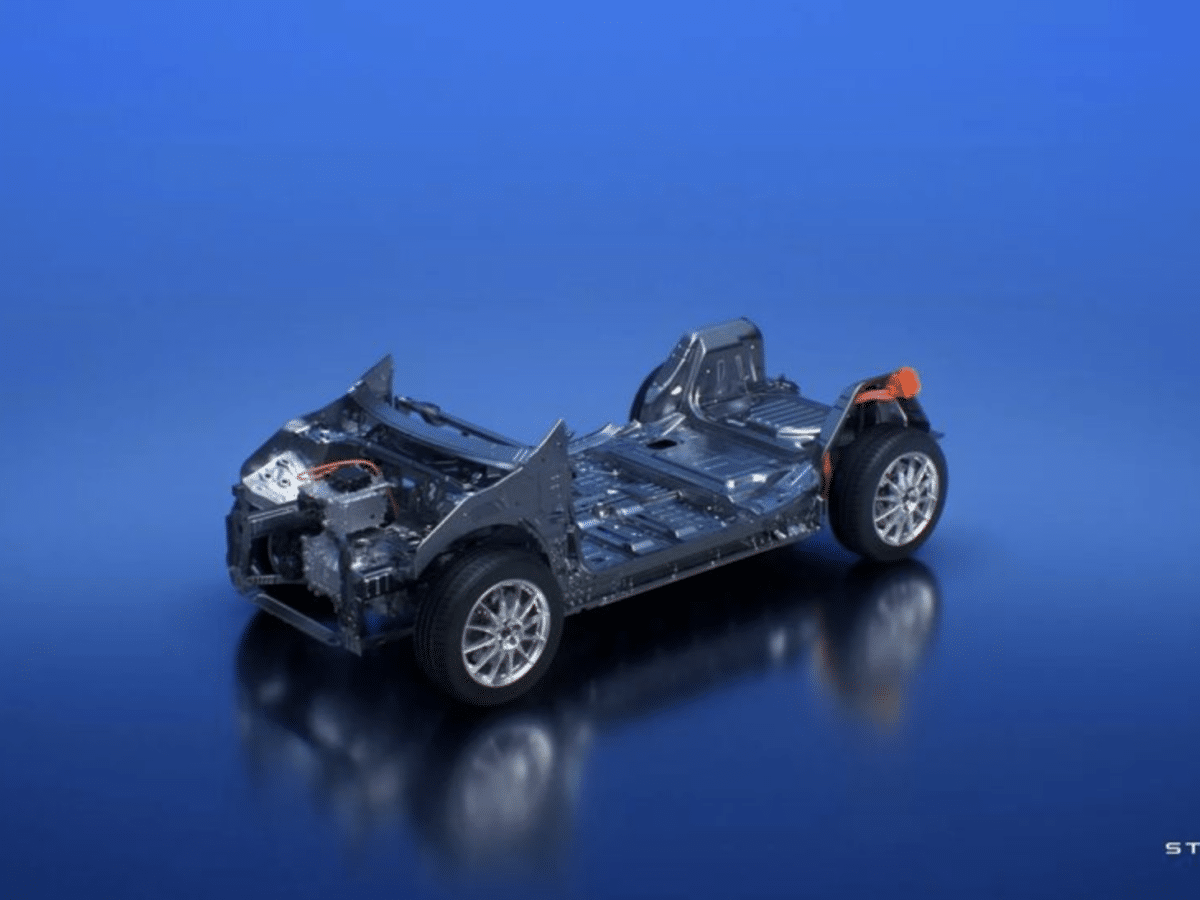
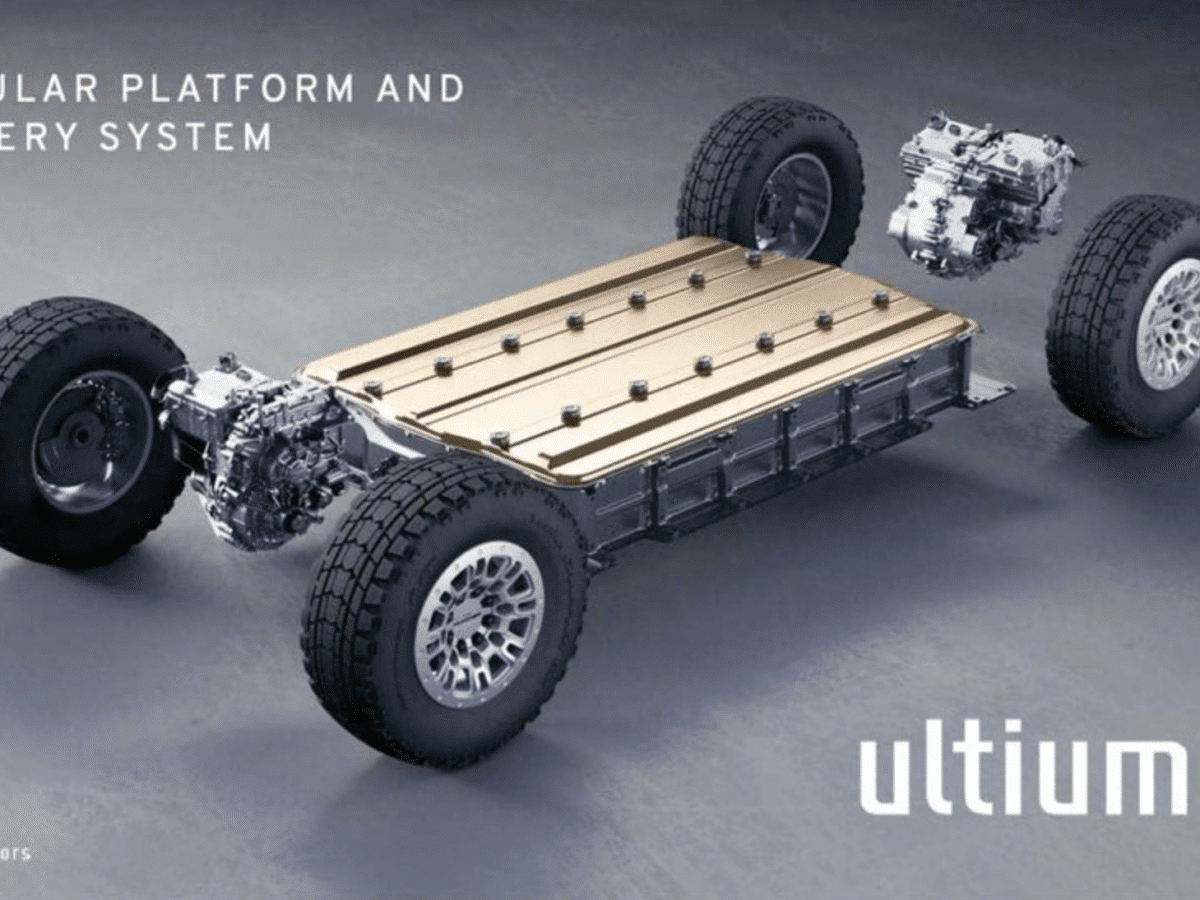

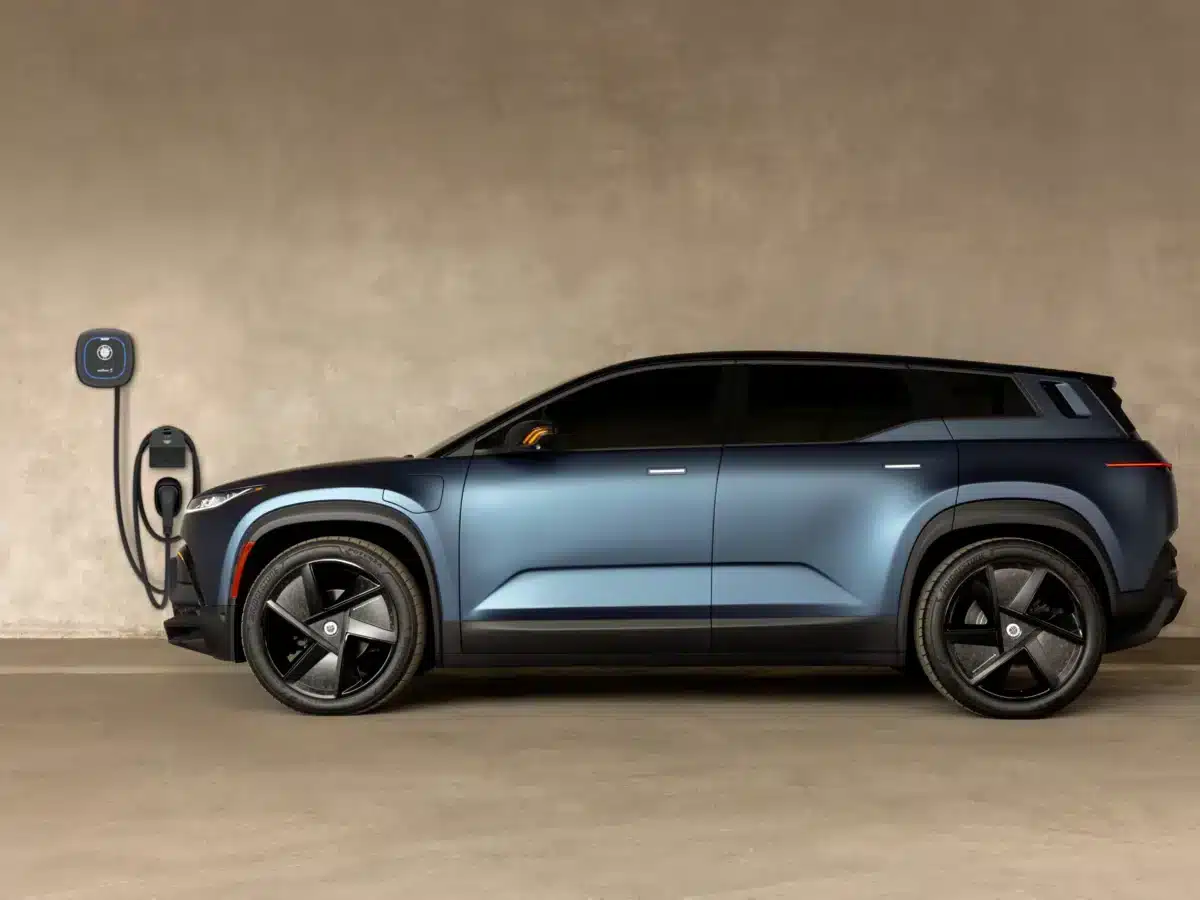
The cost of repairs of hybrid gas/electric cars is very high. Even though the cost to maintain is low, repairs cost are out-of-sight. I know this from family experience with hybrid electric/gas vehicles. I also am concerned about a safety issue I have experience. When in a parking lot I cannot hear an electric vehicle backing up. Seems like a silly issue, but when you are are walking through a parking lot this can be a concern. Charging stations are difficult to find and I do not have the electrical capacity in my home to establish a home charging station nor easily accessible access to the garage area to run electrical lines. Charging at home will raise my electric bill where rates are escalating. Another concern is accidents. A good friend was killed in a head-on collision in his Prius. There is no engine in the front like a gas powered vehicle to absorb the impact and divert the engine downward in a head-on impact. This is a design in gas powered front engines to deflect the engine downward in the event of a head-on collision. I agree with all the other factors on why not to buy an electric vehicle. If I would buy one it would have to be a gas/hybrid so I would not need to stop at a charging station. Toyota would be my brand…except a not a Prius.
Hi Andy, thank you for your comment. We are sorry to hear about your friend.
The switch to electric is still a steep climb for many and it won’t be done in a day.
It will be interesting to see where the world is at in 5-15 years.